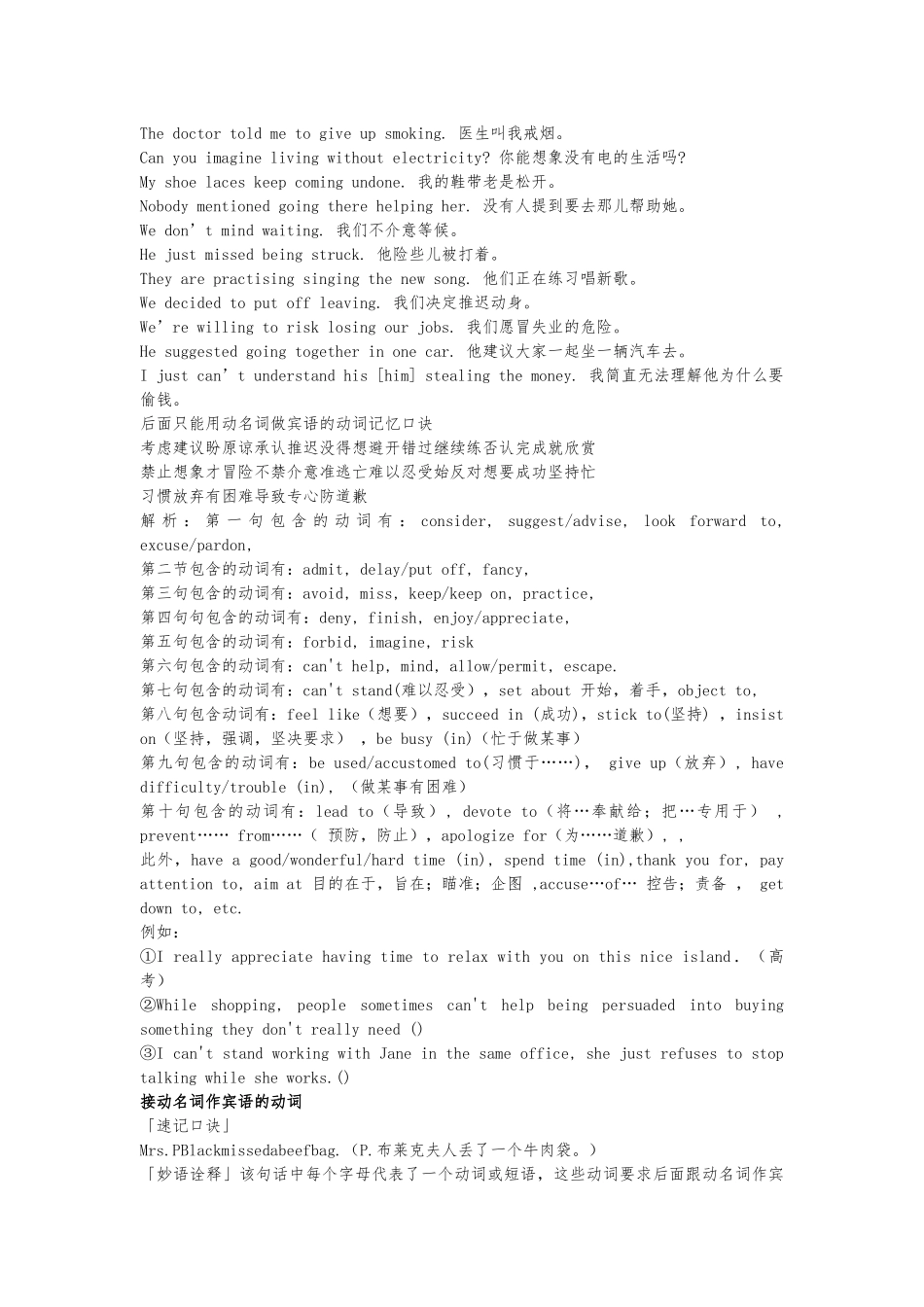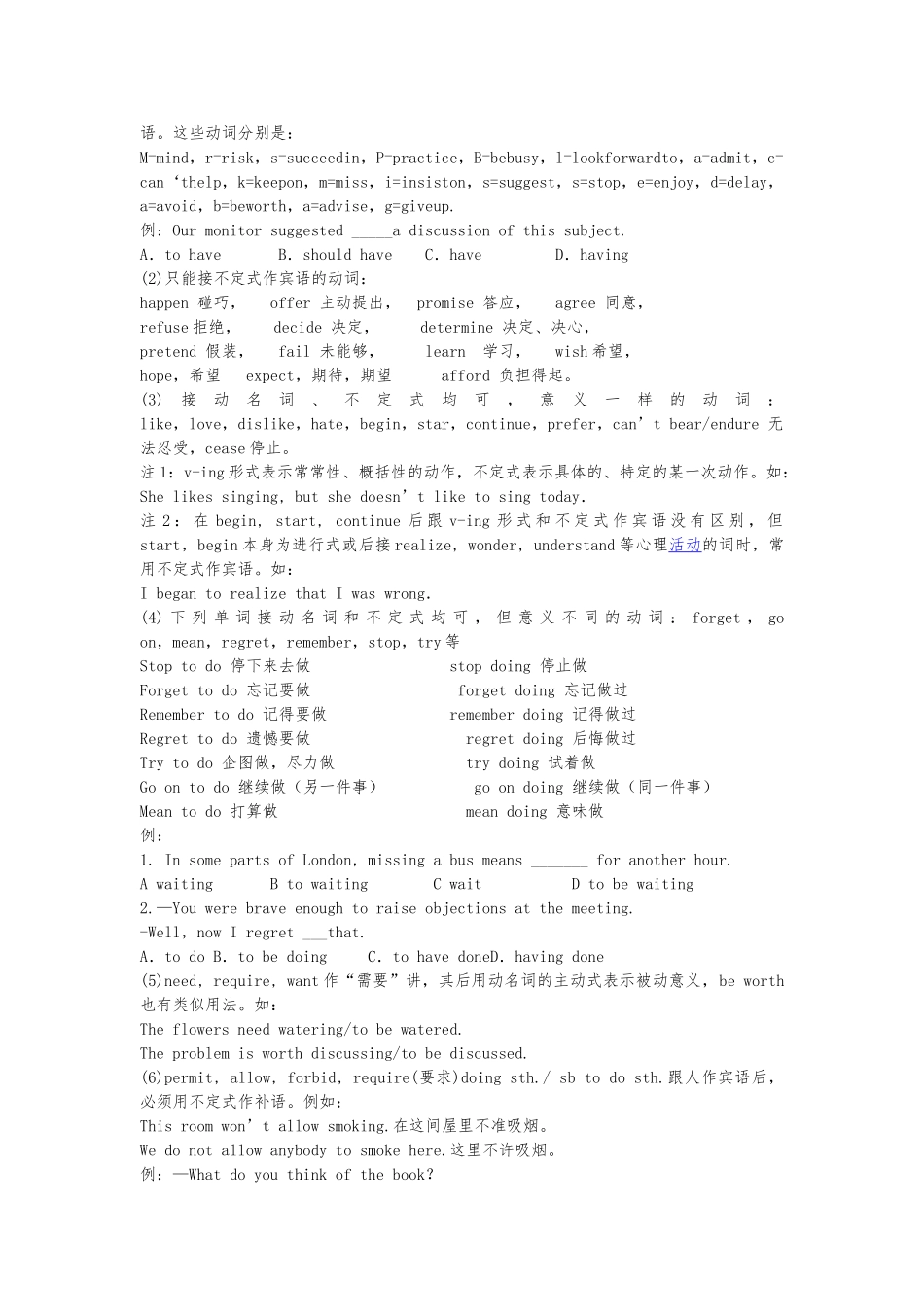动名词做主语和宾语的用法与练习动名词(动名词具有动词和名词的特征,在句中作主语、表语、宾语和定语)动名词主动语态被动语态与谓语动词的关系一般式DoingBeing done与谓语动作同时发生完成式Having doneHaving been done动作发生在谓语动作之前作主语1.谓语用单数。Climbing mountains is really fun.Swimming is my favorite sport.Reading is an art.Getting up early is a good habit.例:1.-What do you think made Mary so upset?-___ her new bicycle.A. As she lostB.Lost C.LosingD.Because of losing2. 使用形式主语 it,而将动名词放在句尾。It’s no use doing …It’s no good doing…It’s a waste of time doing …例:It’s no good______ (wait) here.It’s no use ______(argue) with her.It’s no good _______(smoke), you’d better give it up.It’s a waste of time _______(wait) here.No smoking ( =No smoking is allowed (here) ).作宾语习惯上接动名词作宾语的动词[附记忆口诀]其后习惯上要跟动名词作宾语的常见动词有以下词汇:, admit, appreciate, avoid, burst out, consider, delay, deny, dislike, enjoy, escape, excuse, fancy, feel like, finish, forgive, give up, (can’t) help, imagine, keep (on), mind, miss, practise, prevent, put off, resist, risk, (can’t) stand, stop, suggest, understand 等。如:用法举例:He admitted having taken the money. 他承认拿了那笔钱。It was impossible to avoid being affected. 要想不受影响是不可能的。She burst out crying (laughing, singing). 她突然哭(笑,唱)起来。I’ve often considered studying abroad. 我常常在想出国留学。They have put off leaving. 他们已推迟动身。She enjoys helping her parents with the housework. 她喜爱帮她母亲做家务。There is no way to escape doing the work. 没有办法逃脱做这项工作。Please excuse my opening your letter by mistake. 请原谅我误拆了你的信。There was a deadly silence after she finished speaking. 她说完话后是一片沉默。Please forgive my interrupting. 请原谅我打扰了。...


